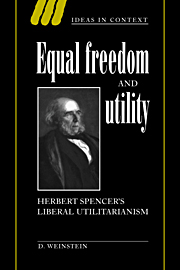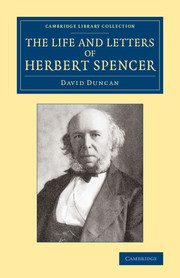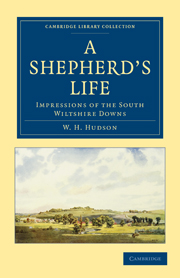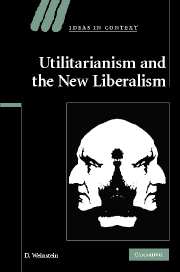Equal Freedom and Utility
This rich and provocative study is the first to examine Herbert Spencer's critical role in the development of liberal utilitarian moral and political philosophy in the nineteenth century, as well as the success of his version of it. While several scholars correctly see Mill as a founder of liberal utilitarianism, none have appreciated Spencer's equally important formative role. Weinstein reinterprets Spencer's version of liberal utilitarianism and illustrates that his moral and political thought exhibits greater systematic integrity than received views of his thought acknowledge.
- Unique study which is the first to examine Spencer's critical role in the development of liberal moral and political philosophy in the nineteenth century
- Underscores the similarities between Spencer and J. S. Mill
- Suggests that Spencer's image as a social Darwinist is a caricature
Product details
November 2006Paperback
9780521026864
252 pages
228 × 152 × 18 mm
0.391kg
Available
Table of Contents
- Acknowledgements
- Note on the text
- Introduction
- 1. Social evolution
- 2. Social evolution and the moral psychology of equal freedom
- 3. Equal freedom and moral rights
- 4. Moral rights and utility
- 5. The logical coherence of Spencer's liberal utilitarianism
- 6. Spencer's ethical reasoning
- 7. Land nationalization and property
- Conclusion
- Bibliography
- Index.






